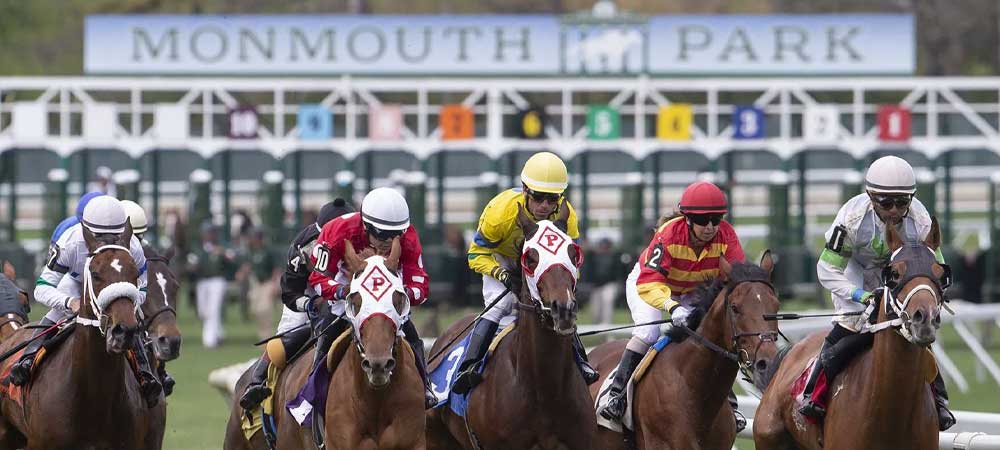In the wake of the Supreme Court’s overturning of the Professional and Amateur Sports Protection Act (PASPA, 1992), Monmouth Park – one of the state’s largest racinos, dubbed “The Shore’s Greatest Stretch” – will apparently beat Atlantic City casinos to the punch, as they’re slated to offer sports betting by Memorial Day (Monday, May 28, 2018). So, after 25 years of fighting PASPA’s unconstitutional nonsense, New Jersey will finally be operating its first legal sportsbook in just two weeks’ time.
Dennis Drazin, president and CEO of Darby Development LLC (the Monmouth Park operator), has indicated that he’d prefer to get sports betting kicked off on the Friday before Memorial Day, but he also understands that “with all the logistics [and] getting everyone trained,” that timeframe might be a bit too ambitious. There is also the question of whether or not the NJ state legislature wishes to add new regulations to the existing New Jersey laws governing sports betting before any public sportsbooks can go operational, but Drazin said there is nothing currently barring the opening of Monmouth’s sportsbook. Still, he said, he would defer to any congressional or gubernatorial instructions on the matter. So far, there is no indication that the legislative or executive branches will interrupt Monmouth Park’s plans.
All that said, Monmouth Park will not be crafting its own sportsbook service from scratch (which helps explain why the established timeframe is seemingly so brisk). Instead, they have contracted with global sportsbook operator William Hill, with whom they already operate the William Hill Sports Bar inside Monmouth Park’s guest facilities. $5 million has been earmarked in this deal to build out the site’s sports betting business in the coming few years.
Monmouth’s approach to legalized sports betting in New Jersey is likely to be a model for many states going forward, particularly those that operate racinos but don’t have proper commercial or tribal casinos within their borders. Regardless, you can expect that your state’s existing gambling infrastructure (if there is one) will get the first crack at the new wave of legal US sports betting.

